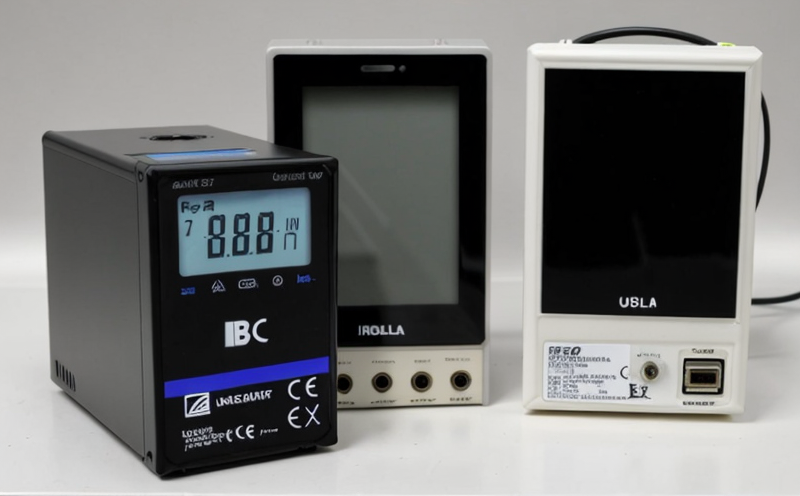DIN EN 62133-2 Consumer Electronics Portable Rechargeable Battery Testing
The DIN EN 62133-2 standard is a crucial guideline for testing rechargeable batteries used in portable consumer electronics. This standard ensures that the batteries are safe, reliable, and compliant with international quality standards. The focus of this section will be on providing comprehensive insights into how this test is conducted, its significance within the industry, and why it is essential for manufacturers.
The testing procedures outlined in DIN EN 62133-2 cover a wide range of critical aspects including but not limited to safety features like overcurrent protection, thermal management, and overvoltage protection. The standard also addresses operational parameters such as charging efficiency, discharge performance, and cycle life. Compliance with this standard is mandatory for many consumer electronics products sold in Europe.
The testing process involves rigorous evaluation of the battery’s ability to withstand various stress conditions. This includes temperature cycling tests to ensure that batteries can operate under extreme temperatures without failure. Another key aspect is the impact test which simulates real-world scenarios where a portable device might experience physical shocks or drops. These tests are designed to identify any potential weaknesses in the design or manufacturing process.
Manufacturers and quality managers rely heavily on DIN EN 62133-2 testing to ensure that their products meet stringent safety requirements and performance expectations. By adhering to these standards, companies can enhance consumer trust and protect themselves against legal liabilities associated with product failures. Additionally, compliance helps in achieving market access for exports and enhances brand reputation.
The detailed procedures outlined in this standard are vital for ensuring the integrity of portable rechargeable batteries across various applications ranging from smartphones to power tools. The comprehensive nature of DIN EN 62133-2 ensures that every aspect contributing to the safety and reliability of these devices is thoroughly evaluated.
Industry Applications
| Application | Description |
|---|---|
| Smartphones | Battery performance under various conditions including charging and discharging rates. |
| Laptops | Evaluation of battery longevity and safety during extreme temperature cycles. |
| Tablet Computers | Testing for thermal management capabilities to prevent overheating issues. |
| Portable Medical Devices | Ensuring the reliability of power supply in critical medical applications. |
- Battery packs for electric vehicles
- Lithium-ion batteries used in drones and robotics
- Backup power systems in consumer electronics devices
| Test Parameters | Description |
|---|---|
| Battery Capacity | Determining the actual capacity of a battery under specified conditions. |
| Cycling Life | Measuring how many charge-discharge cycles a battery can undergo before performance degrades significantly. |
| Overcurrent Protection | Evaluating the ability of the battery to protect itself from overcurrent situations. |
Why Choose This Test
Selecting DIN EN 62133-2 testing is essential for several reasons. Firstly, it guarantees that your products meet all necessary safety and performance criteria as stipulated by international standards. Compliance with these standards can significantly reduce the risk of product recalls or returns due to non-compliance issues.
Secondly, choosing this test allows you to demonstrate your commitment to quality and safety to customers, stakeholders, and regulatory bodies alike. This enhances brand reputation and builds trust among consumers who value reliability above all else.
A third reason for opting for DIN EN 62133-2 testing is the potential reduction in costs associated with post-market failures. By identifying issues early on through thorough pre-market testing according to this standard, companies can avoid costly repairs or replacements after products have already been released into the market.
Finally, selecting DIN EN 62133-2 testing ensures that your products are ready for entry into various markets within Europe and beyond. Many countries recognize compliance with international standards as a key factor in determining whether imported goods meet local safety requirements.
International Acceptance and Recognition
DIN EN 62133-2 has gained widespread acceptance among manufacturers, regulatory bodies, and consumers alike. Its recognition is not limited to Europe but extends globally due to its comprehensive approach to evaluating portable rechargeable batteries.
Maintaining compliance with this standard ensures that your products are accepted across different regions without requiring additional certifications or modifications. This saves time and resources while expanding market reach significantly.
Furthermore, adhering to DIN EN 62133-2 helps in avoiding legal challenges related to non-compliance issues. By ensuring strict adherence to the specified standards throughout your product lifecycle, you minimize potential risks associated with regulatory actions against non-conforming products.





